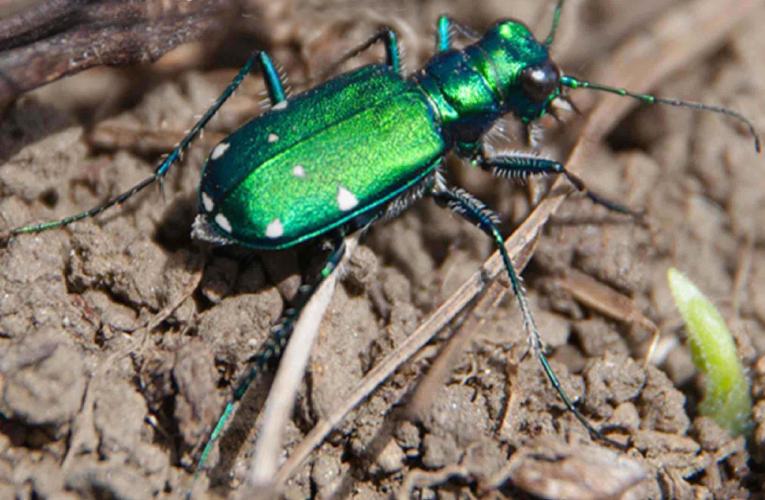DURHAM, N.C. – The success of many North American crops, from corn to Christmas trees, partly depends on ground beetles, small insects that play a big role in local food webs by eating pests and weed seeds that could otherwise damage crops.
But a new study by researchers at Penn State University, Duke University, and the University of Saskatchewan suggests not all of the nearly 2,000 species of ground beetles found in North America will thrive under climate change. Some could decline.
And that, the study suggests, could have far-reaching implications for agriculture, forestry, and conservation.
By analyzing data on 136 different ground beetle species from diverse habitats across continental North America, Puerto Rico and Hawaii, the researchers found that a species’ odds of success in a changing climate depend on several core traits, such as its habitat preference, body size, and whether it flies, burrows, climbs or runs.
“We found that less mobile, nonflying ground beetles, which are critical pest control agents, are more likely to decline over time in a warmer, dryer climate,” said Tong Qiu, assistant professor of multifunctional landscapes at Penn State, who led the study. “That means you’re going to have more pests that can impact agricultural and forest ecosystems.”
But there is reason for hope, Qiu added, because the analysis also showed that habitat conservation can mitigate these effects and reverse the trends in some areas.
Gaps in forest canopies, for instance, benefit beetle species that require open ground to pursue prey. Differing densities of plants and logs on the forest floor can create microclimates that help mitigate the effects of a warmer, drier climate.
“We hope conservation biologists will use the information in this paper and the online map that we created to better manage habitats for insects in general. Ground beetles are very beneficial to ecosystems, but they’re largely invisible to the average person. In this paper we’re showing the broad impacts they have on whole communities in forested and agricultural ecosystems,” said Qiu, who conducted much of the study while he was a postdoctoral researcher at Duke’s Nicholas School of the Environment.
James Clark, Nicholas Distinguished Professor of Environmental Science at the Nicholas School, and Jennifer Swenson, professor of the practice of geospatial analysis and remote sensing at the Nicholas School, coauthored the study with Qiu. Aaron Bell, a PhD candidate at the University of Saskatchewan also coauthored it.
They published their peer-reviewed paper March 23 in the journal Global Ecology and Biogeography.
The researchers used ground beetle count data from the National Science Foundation’s National Ecological Observatory Network (NEON) and from 11 previously published studies to measure and map the beetles’ distribution across North America. Habitat information, such as the size and location of gaps in forest canopies and the density of plants and logs on a forest floor, was obtained using NEON’s low-altitude Airborne Observation Platform, which is equipped with imaging instruments that measure a wide spectrum of light to create detailed three-dimensional images of landscapes.
Qiu and his colleagues then entered the collected species and habitat data into an advanced statistical model and ran moderate to high greenhouse gas emission scenarios to study how the ground beetles respond to a changing climate.
In addition to Clark’s primary faculty appointment at Duke’s Nicholas School, he holds an appointment at the Université Grenoble Alpes through the Institute National de Recherche pour l’Agriculture, l’Alimentation et l’Environnement.
The National Science Foundation, Belmont Forum, NASA, and France’s Programme d’Investissement d’Avenir supported the new study.
CITATION: “Habitat-Trait Interactions that Control Response to Climate Change: North American Ground beetles (Carabidae),” Tong Qiu, Aaron J. Bell, Jennifer J. Swenson and James S. Clark; Global Ecology and Biogeography, March 23, 2023. DOI: https://doi.org/10.1111/geb.13670
###
The Duke Climate Commitment: Duke is uniting the university’s education, research, operations and public service missions to engage our entire community in the relentless pursuit of climate change solutions. Learn more


